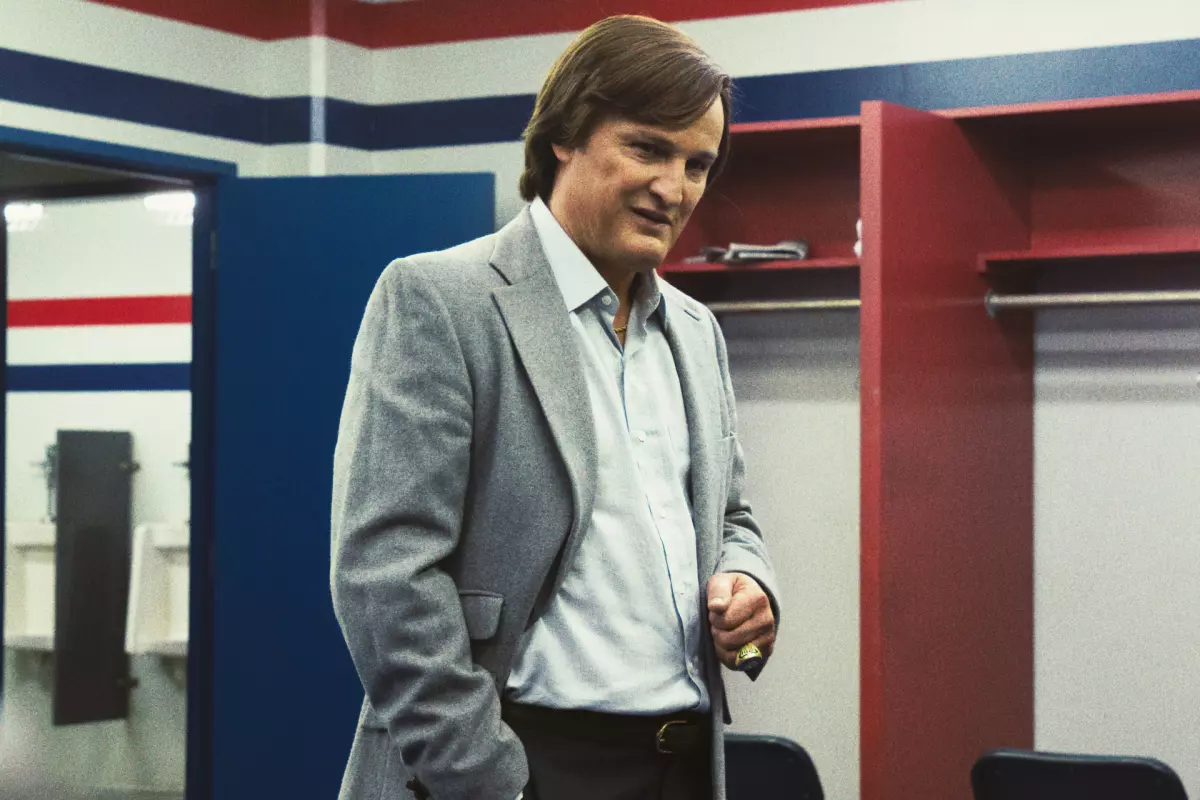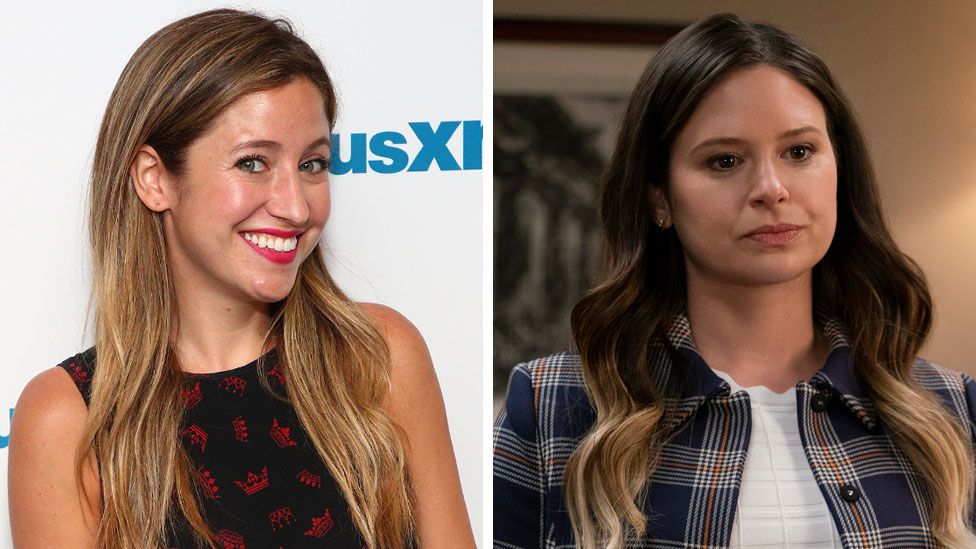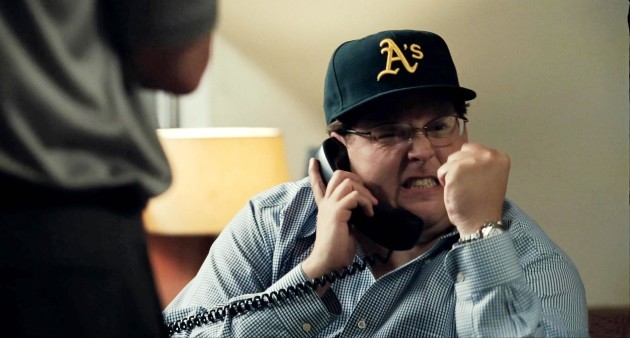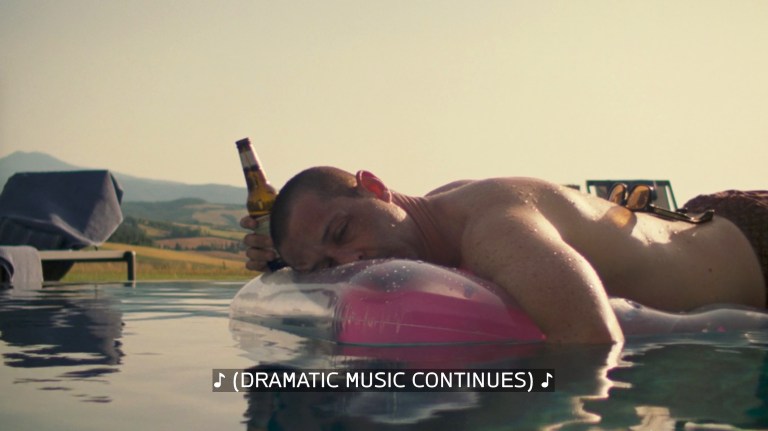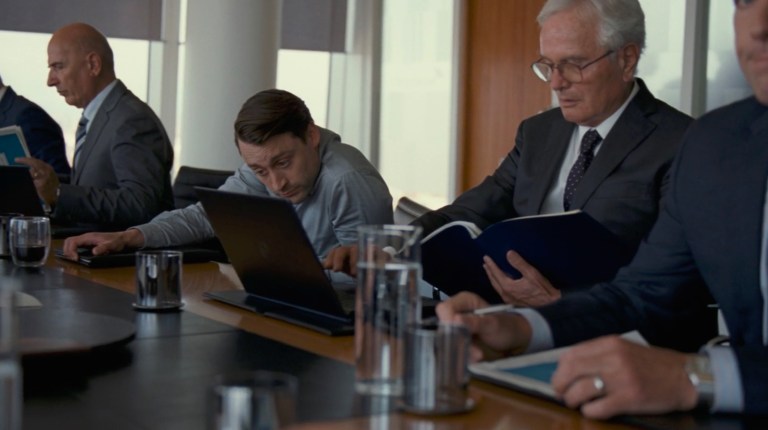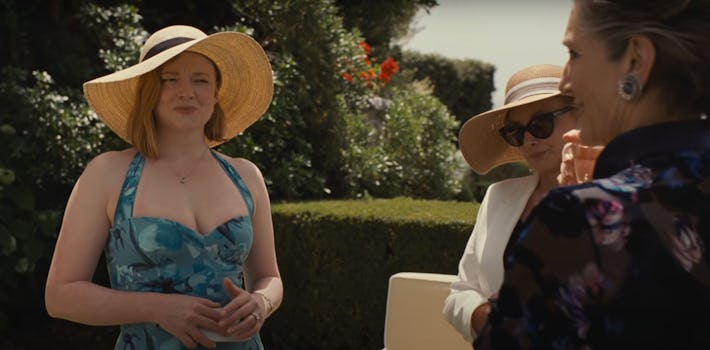So, Winning Time basically wrapped up in two seasons, and the final episode had an epilogue after Boston won Game 7 of the 1984 NBA Finals, which basically meant that Winning Time was getting cancelled. Sure enough, HBO and David Zaslav decided to cancel Winning Time, so that means there won’t be a third season on their network.
So how good was it? Let’s break it down.
I guess season 1 kind of had me hyped, more than I probably should have been. Season 2 I felt had its good moments, but it was more disappointing overall, especially the finale.
Positives
1) The acting was really on point. The portrayal of the players really looked like the players, at least up close and if you don’t pay attention to players’ heights. Also, their personalities seemed to really mirror their real-life counterparts, especially Quincy Isaiah’s portrayal of Magic Johnson, Sean Patrick Small’s portrayal of Larry Bird. They were able to show their characters as complex, interesting, and complicated. The only real egregious acting was Jason Clarke’s absurd, over-the-top portrayal of Jerry West, but it was toned down in Season 2.
2) Season 1 of Winning Time was bold, ambitious, and it didn’t care who it offended, even if they did. I found it both refreshing and shocking at times, but it often tended to straddle the line of boldly interesting and downright problematic. They really didn’t give a hoot about if people would like their show or not, they made it.
3) I really liked how Season 1 went into some nitty-gritty details, some which I didn’t even know about prior to the start of the show. That it actually made me look up head coach Jack McKinney, and for the most part, they seemed to do a really good and accurate job of portraying his time with the Lakers. They emphasized that he was an important member of Showtime and helped engineer it, and he could’ve been remembered more had it not been for his untimely, gruesome bike accident that he suffered early in the 1979-80 NBA season that almost cost his life and caused his significant memory loss. I also liked how they covered the Lakers’ interest in Jerry Tarkanian and how an incident involving a close friend of his led him to turn down the Lakers’ job and to stay at UNLV.
Tracy Letts did a tremendous job of playing Jack McKinney in both seasons. I also loved how in Season 2 that Jack McKinney shows up, tells his friend and coach Paul Westhead that he’ll expose him, and then he goes right back to inquire about his food, as if nothing happened.
4) The tensions they set up made for terrific entertainment. Magic and Kareem, Magic and Norm Nixon, Magic and Paul Westhead, Magic and Larry Bird, Magic and Pat Riley (spoiler alert those who haven’t seen Season 2), Jerry Buss and Red Auerbach, you name it. They were a master of weaving in tension, and it was great to see the characters at loggerheads with each other, especially with stakes on the line, and a championship up for grabs.
Negatives
1) Season 1 Jerry West was way too outrageous and absurd. Jason Clarke’s portrayal of Jerry West was to portray him as a vulgar, cartoonish, resentful caricature of a man that loathed his NBA experiences, to the point where he would be humorously cursing up a storm, and one scene in season 1 has him having angry sex with his wife, which was completely outlandish and farcical. As a basketball fan, I do not regard these sex scenes as essential to the plot. As a fan of arts and entertainment, I found the scene absurd and kind of amusing, but also distracting, because it takes away from basketball. Also, to me, Clarke’s season 1’s portrayal of him just looked like a completely irresponsible and reckless portrayal of Jerry West, because there doesn’t seem to be anything that would actually indicate that he did half the things he was shown to do in season 1. Sure, that it’s a dramatization, but that doesn’t make their portrayal of him any less reckless.
2) Season 2 Magic Johnson whined way too much. As fun as it was to watch him play on that series, there were some moments where it was really grating to hear that much whining. It’s clear he and Paul Westhead didn’t get along in Season 2, and Westhead certainly overstepped his boundaries, but he did a lot of whining to Cookie in the second season. Some less time whining on the phone would’ve been nice, and they probably should’ve established Magic and Cookie’s relationship better to ensure that the audience would root for both of them to be together, because for 1 1/2 seasons, it seems like their relationship was forced upon the audience, as it seemed like they were estranged acquaintances before Magic flew down to San Diego to meet up with Cookie in person.
3) Season 2 Pat Riley was portrayed as losing too much when initially hired, but in looking up his Basketball-Reference, that wasn’t actually true. The 1981-82 Lakers actually reeled off four straight wins after Westhead’s firing and ballooned their winning record to 11-4, as that would’ve been in November 1981, and it would be months before Riley lost two games in a row, which would be in early January, and the most he’s lost in a row that season took place in the months of February and January. That said, the Lakers did finish 57-25, and went on to become the 1982 NBA champions.
4) In regards to Season 2, Honey Kaplan (or Honey Buss) is not a real person, but rather is an amalgam based on real people. But it’s shown that Jerry Buss was kind of lecherous and maybe not a great person, and he was sued by multiple women in real life, so I’d rather they show real people rather than fictional characters that were based on real people in a show that is about real people.
5) They missed a golden, comedic opportunity to explain away how they got James Worthy, as they immediately just put in only a single sentence, with Jerry West saying that Bill Sherman gave them a gift. In real life, the Lakers traded Don Ford and a first round pick to be named later (which became Chad Kinch) for Butch Lee and the future 1st overall pick of the 1982 NBA Draft, James Worthy.
Normally, bad teams would get the first overall pick, but this is important because the Lakers had just won the 1982 championship, so they were the best team in basketball, and they then got the best player in the NBA draft. That trade was essentially the Lakers trading away a middling role player (Ford), a first round pick that became a future benchwarmer (Kinch) to Cleveland for a little used, non-essential reserve on their 1980 championship team (1981) and…a future first round pick that became an All-Star, key player to their NBA championship teams, and future Hall of Famer in James Worthy!
That was a terrible trade for the Cleveland Cavaliers, by the way, and an amazing trade for the Lakers, of course. Also, I’m wondering, didn’t anyone protect their picks back then?!? Who would allow themselves to give away future top five picks, let alone future first overall picks?
6) They zoomed too quickly through the 1982 and 1983 NBA Finals. Also, Moses Malone ended up being a Hall of Fame center, as he was also on the 1981 Rockets’ team that beat the Lakers in the playoffs, and he was on the 1983 76ers’ championship team, so they should’ve made the media put Kareem and Moses Malone on more equal footing, as both should’ve been viewed as great players on the show.
7) They made the egregious error of ending Season 2 on a loss to Boston in the 1984 NBA Finals, even though the latter really did happen, especially when it was not guaranteed that they would be picked up for Season 3 (which they weren’t). If a show is in danger of getting cancelled, they should always end the final episode on a win.
While the final episode was well crafted for the most part (with the exception of Claire Rothman’s absurd yelling, which was extremely over the top), and the NBA Finals sequence really had me on my seat on edge, I thought that should’ve been a couple of episodes prior to the final episode. That they ended the episode on a loss and rolled an epilogue really cheated viewers of the Lakers’ “Winning Time” experience, as the Lakers won 5 NBA titles in the 1980s, and we were only shown two of them. That said, I was really concerned how they would handle Len Bias, as I was concerned that they would’ve handled that inappropriately.
Other Thoughts:
In my opinion, Season 2 should’ve wrapped up in one of two ways. They should’ve either had season 2 close with either the conclusion of the 1982 NBA Finals, or with the conclusion of the 1985 NBA Finals, and both of those would’ve resulted in Lakers’ wins, which would give fans the joy of the “Winning Time” experience, instead of having it seem like it was more of a Larry Bird, Red Auerbach, and Boston Celtics’ series without us viewers knowing it. (And man, their portrayal of Larry Bird was a really impressively mean and talented basketball player that really owned 1984!)
If they were to have delved into the 1985 season, they could’ve had Westhead fired sooner in the season rather than linger in the summer (even though Jason Segal is a really good actor, but Westhead was fired 11 games into the 1981-82 season), had less of the Jerry Buss-Honey Kaplan story, and end season 2 by showing the conclusion of the 1985 NBA Finals, which would’ve showed the Lakers ending that on a win, with the intention of showing the 1986 and 1987 NBA Finals for season 3.
The other way would’ve been to show much more of the 1982 NBA Finals, and have them winning the 1982 NBA Finals as season 2’s finale. Did we really need to fast forward through one of their championships? By doing so, it seems as like they robbed the viewers a chance to really get a view of how tough that journey was and to really enjoy the title as much as they did.
Also a minor pet peeve, couldn’t they have shown Danny Ainge more, who did play for the Boston Celtics in that era, and would go on to become their championship winning GM? As a fan of the Chicago Bulls growing up, I remember Ainge was a pesky role player that would get into some altercations with opposing players, and he was also a solid role player on some of those 1980s Celtics’ teams. He is an interesting figure and that could’ve been mined for potentially some source of extra humor. Also, I would’ve loved if they had shown a young Bill Simmons rooting for them too, even if he were just a fan in the crowd back then, since they also had someone portray Jack Nicholson on this show. A potentially missed comedic angle somewhere in there, I think.
I’m also not sure how I feel about the alternating cuts of Lakers’ people chanting F*** Boston, and Celtics’ people chanting Beat LA in Season 2. It was equal parts humorous, but also absurd and cheesy at the same time.
Winning Time’s Season 1 Grade: B (3.5 out of 5)
Winning Time’s Season 2 Grade: C- (1.5 out of 5)
Winning Time’s Overall Grade (Both Seasons): C+ (2.5 out of 5)
So essentially, what I’m saying is I liked season 1, low key thought season 2 could’ve been better and wasn’t as good as it could’ve been, and overall, it was okay. So, I’m giving the show a mixed review grade overall. Fans on Twitter were really down that there won’t be a Season 3.
From a TV perspective, I found this show to be entertaining, though it certainly has its ups and downs, but I think I’m a little burned out from watching this show, so maybe we all could use a break. But as an avid basketball fan, I really do think they should’ve made sure that they could have aired all aspects of the Lakers’ Showtime era, as it was a missed opportunity to show the Lakers in years 1985 to 1991, and also maybe later to show other eras and teams as well.
For those that are wondering, here is the key to my scale.
Scale:
5.0 - A or A+
4.5 - A-
4 - B+
3.5 - B
3 - B-
2.5 - C+
2 - C
1.5 - C-
1 - D+
0.5 - D
0 - D- or lower
Anyways, that is my review of Winning Time, a TV show that aired on HBO for two seasons in 2022 and 2023. If a different network picks them up for season 3, maybe I’ll give it a watch, but it’s uncertain and probably doubtful if that’ll happen. Thanks for reading this article and thanks for reading.
7/3/24 Update:
I have to downgrade Winning Time’s Season 1. I’m sorry, but the portrayal of Jerry West is too ridiculous, outrageous, offensive, and inauthentic for that season to warrant a good score, and hiding behind “it’s a dramatization” is a serious cop out. As for Season 2, speeding through the 1982 NBA Finals where the Lakers win the title and not showing enough screen time to highlight the importance of them winning the NBA title that year is inexcusable.
Winning Time’s Season 1 Grade: C+ (2.5 out of 5)
Winning Time’s Season 2 Grade: C- (1.5 out of 5)
Winning Time’s Overall Grade (Both Seasons): C (2 out of 5)



